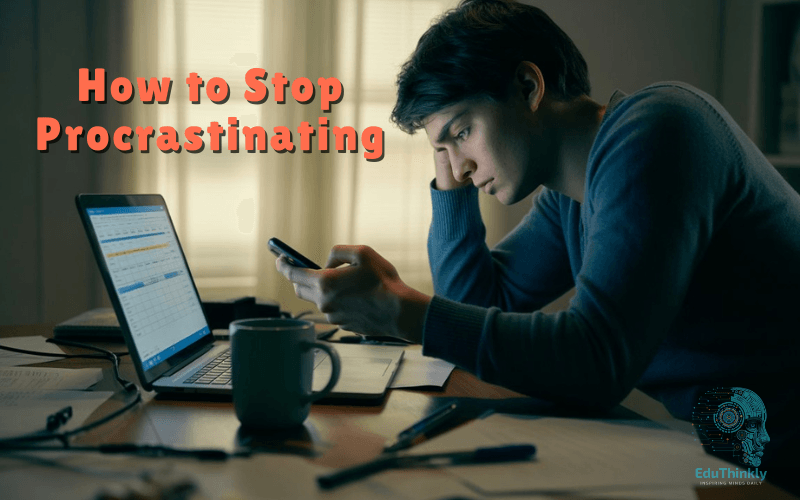Why You Still Procrastinate (Even When You Know You Shouldn't): Psychological Traps and How to Beat Them
productivity
13 Jul 2025, 23:52

Keep reading below:
We've all had those moments. You know exactly what needs to get done but somehow you find yourself scrolling through your phone, binge-watching shows or doing anything else that feels easier.
So why do we put things off even when we know it just makes things harder in the long run?
It’s not because we’re lazy.
The truth is procrastination is often your brain’s way of protecting you. It’s a defense mechanism helping you avoid discomfort fear of failure or even the pressure of your own high expectations.
In this article we’ll look at the hidden mental traps that keep you stuck and how you can finally move past them.
The Psychology Behind Procrastination
Procrastination isn’t really about managing your time. It’s about managing your emotions.
Deep down your brain cares more about avoiding discomfort than getting things done. This shows up in a few ways:
Present bias is when you choose feeling comfortable right now instead of working for a future reward.
The instant gratification loop is when you chase quick hits of pleasure like scrolling social media just to avoid putting in mental effort.
Perfectionism paralysis is when you avoid starting something because you’re scared you won’t do it perfectly.
Here’s what matters to remember. You’re not lazy. You’re just trying to protect yourself from feeling bad.
Five Hidden Psychological Traps That Keep You Stuck
First is the fear of failure.
You put things off because starting means you might fail and your brain sees that as a threat to who you believe you are.
Next comes decision fatigue.
When you face too many choices your mental energy drains with every small question like what should I do next.
Then there’s task aversion.
If something feels boring too complicated or unclear your brain treats it like danger and pushes you to find distractions instead.
Another trap is overwhelm paralysis.
When a task feels way too big your brain simply shuts down to avoid dealing with what feels like a threat.
And finally there’s identity conflict.
If deep down you believe you’re just not a productive person your brain will work to keep that belief alive even if it means stopping you from making progress.
How to Break the Cycle with Practical Strategies
Now that you know why you procrastinate let’s talk about how to stop. Not with vague advice but with simple techniques that actually work.
Start with timeboxing.
Instead of trying to finish a task just give it a set block of time. This lowers the pressure and gives your mind clear boundaries.
Next try habit stacking.
Take a small productive habit and attach it to something you already do. For example work for five minutes right after your morning coffee. That small momentum can make a big difference.
Another useful tool is cognitive reframing.
Instead of saying I have to do this try thinking I choose to do this. Taking back control over your tasks helps reduce the mental resistance.
Then remember self-compassion.
Forgive yourself when you slip up. Beating yourself up only increases anxiety and makes you more likely to avoid tasks in the future.
Finally use the small wins strategy.
Break big tasks into tiny steps. Every small success gives your brain a little reward which makes it easier to keep going.
Let me share a real example.
Sarah is a software engineer in New York who kept avoiding her code documentation. She decided to think of it as teaching her future self how to solve problems. Suddenly it wasn’t a chore anymore. It felt like a helpful act and that shift alone helped her break months of avoidance.
Conclusion: Beating Procrastination Starts with Compassion
Overcoming procrastination isn’t about forcing yourself with more willpower. It’s about understanding your mind and learning to work with it instead of fighting against it.
Every small step matters. Focus on progress not perfection.
And the next time you catch yourself putting something off take a moment and ask yourself what discomfort am I trying to avoid.
That answer might help you move forward.